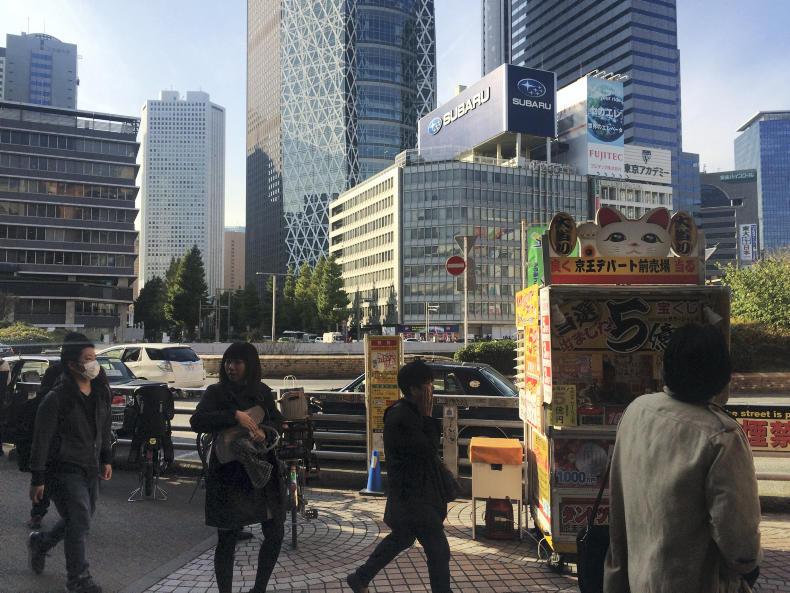These were the thoughts of Mervi Kahlos, counsellor to the trade section of the EU in Japan, as she addressed the Irish trade mission to Japan at the Irish Embassy in Tokyo.
In July, the EU and Japan signed a preliminary trade agreement that would see European food imports to Japan reduce dramatically over a number of years.
Japan has the world’s fourth largest economy, according to the UN, importing up to €51bn worth of food and drink annually.
Kahlos has extensive experience in agricutural trade relations in both Europe and Japan, and told members of the trade mission that it was now important for the two parties to forge ahead with the preliminary trade deal given the future political uncertainty.
“We obviously want to have it put into place fairly quickly because if you think about it, it’s a question of time and things could change in the future,” Kahlos said.
“We will have a new European parliament in the future, Brexit will happen, a lot of things could change. If you think about let’s say a year back, there was a lot of resistance towards the trade agreement, now, especially after Trump came into power and he pulled out of the Trans-Pacific Partnership (TPP), with this agreement I think the EU and Japan have shown that we can conclude a deal, and it’s globally important to send this kind of message.”
UK-Japan relations
Time is also of the essence for Europe to close the deal as just last month the UK Prime Minister Theresa May visited Japan on a three-day trade mission.
A separate UK-Japan trade deal would be advantageous for the UK as Brexit approaches, and Japanese officials have already visited abattoirs, farms and laboratories in the UK.
Laurent Vernet, head of marketing at Quality Meat Scotland, described Japan as a “key market which offers exciting opportunities for the future”.
From a UK perspective a trade deal with Japan would also consolidate their trade in Asia, having recently secured a £34m trade deal to sell beef to the Philippines.
Irish trade mission
However, the Minister for Agriculture Michael Creed and the CEO of Bord Bia Tara McCarthy are wasting no time when it comes to promoting Ireland’s interests in Japan, as talks continue with trading parties this week.
While you've been sleeping we've hit the ground running on Day 1 of our Government of Ireland Agri-Food Trade Mission to Japan #irishfoodexports pic.twitter.com/2nHgEF72Ht
— Michael Creed TD (@creedcnw) November 13, 2017
Currently the import tariff on beef entering Japan stands at 50%. Usually the import tariff stands at 38.5%, but a surge in volume of imported beef triggered a trade safeguard which imposed the increased rate of tariff.
After the deal is ratified the tariff will be gradually decreased from 38.5% to 9% and the volume of EU meat that can be imported will be increased.
Japan’s best interest
The quicker a deal is ratified and trade relations are put formally in place, the sooner EU countries can avail of the increased volume of beef imports.
EU trade counsellor Kahlos also believes that it is in Japan’s best interests to secure the deal in the near future.
“They [the Japanese] have understood that when the population is declining and their domestic market is shrinking, they need to look for new markets outside and that’s why they want to also conclude these agreements.”
In pictures: what do Japanese consumers eat?
Dairy opportunity in Japan trade deal
$11/kg for Irish cattle tongues in Japan






 This is a subscriber-only article
This is a subscriber-only article










SHARING OPTIONS: